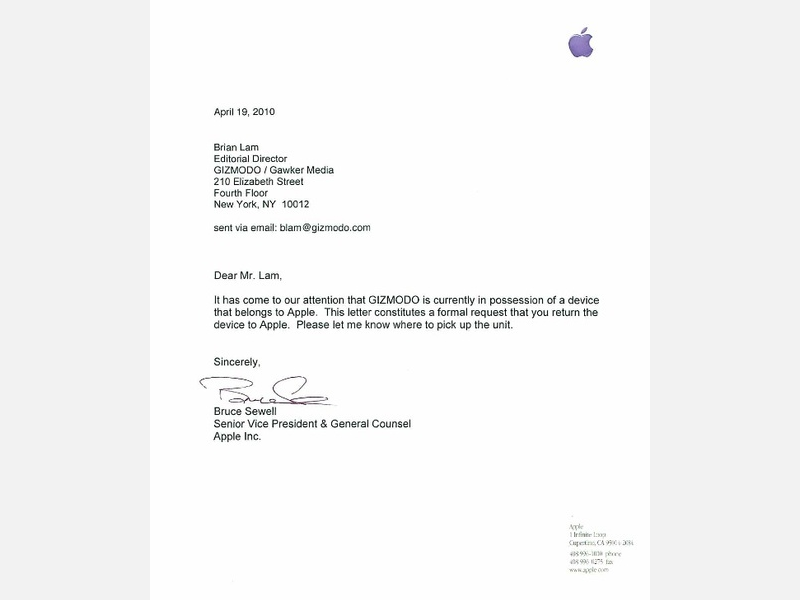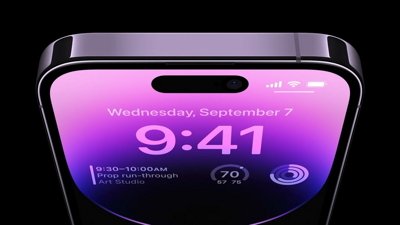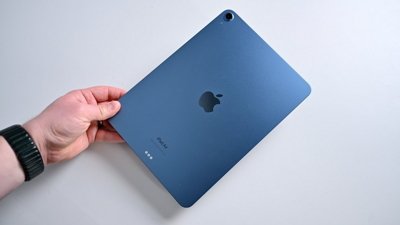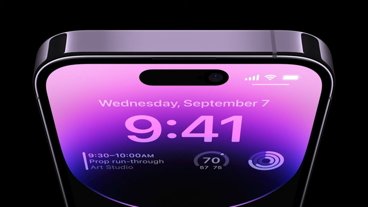Apple asks for iPhone prototype back, Gizmodo could face UTSA lawsuit
Gizmodo's Jason Chen published the letter (shown below) with a response to Apple that insisted "we didn't know [the prototype iPhone] was stolen" at the time that Gizmodo chose to shell out a reported $5,000 to obtain it from the person who claimed to have found it.
It is beyond dubious that Gizmodo would have paid that much money for a device if it did not reasonably think that it was anything other than a real prototype that belonged to Apple. Further, the fact that it was remotely wiped provided compelling evidence that it was in fact stolen.
However, in addition to the legal issues involved with buying stolen merchandise (which are in effect regardless of whether the buyer knows the goods are stolen or not), Gizmodo also faces legal consequences under California's Uniform Trade Secrets Act.
Section 3425.1 defines "misappropriation of trade secrets" as a civil code violation, with wording that makes it pretty clear that buying a stolen prototype, determining it is authentic and includes valuable information in the form of trade secrets, and then publishing the information to earn money and notoriety for doing so is something that will expose you to legal liability.
The code section defines these phrases:
(a) “Improper means†includes theft, bribery, misrepresentation, breach or inducement of a breach of a duty to maintain secrecy, or espionage through electronic or other means. Reverse engineering or independent derivation alone shall not be considered improper means.
(b) “Misappropriation†means:(1) Acquisition of a secret of another by a person who knows or has reason to know that the secret was acquired by improper means; or (2) Disclosure or use of a secret of another without express or implied consent by a person who:(A) Used improper means to acquire knowledge of the secret; or (B) At the time of disclosure or use, knew or had reason to know that his or her knowledge of the secret was: (i) Derived from or through a person who had utilized improper means to acquire it; (ii) Acquired under circumstances giving rise to a duty to maintain its secrecy or limit its use; or (iii) Derived from or through a person who owed a duty to the person seeking relief to maintain its secrecy or limit its use; or (C) Before a material change of his or her position, knew or had reason to know that it was a secret and that knowledge of it had been acquired by accident or mistake.
(c) “Person†means a natural person, corporation, business trust, estate, trust, partnership, limited liability company, association, joint venture, government, governmental subdivision or agency, or any other legal or commercial entity.
(d) “Trade secret†means information, including a formula, pattern, compilation, program, device, method, technique, or process, that:(1) Derives independent economic value, actual or potential, from not being generally known to the public or to other persons who can obtain economic value from its disclosure or use; and (2) Is the subject of efforts that are reasonable under the circumstances to maintain its secrecy.
The remedies outlined for "misappropriation of trade secrets" which "used improper means [including theft] to acquire knowledge of the secret" are described as follows:
§ 3426.3 (a) A complainant may recover damages for the actual loss caused by misappropriation. A complainant also may recover for the unjust enrichment caused by misappropriation that is not taken into account in computing damages for actual loss.
(b) If neither damages nor unjust enrichment caused by misappropriation are provable, the court may order payment of a reasonable royalty for no longer than the period of time the use could have been prohibited.
(c) If willful and malicious misappropriation exists, the court may award exemplary damages in an amount not exceeding twice any award made under subdivision (a) or (b).
A following section indicates Apple has three years to file suit against Gizmodo and or Gawker Media.
§ 3426.6. An action for misappropriation must be brought within three years after the misappropriation is discovered or by the exercise of reasonable diligence should have been discovered. For the purposes of this section, a continuing misappropriation constitutes a single claim.
 Prince McLean
Prince McLean














 Charles Martin
Charles Martin
 William Gallagher
William Gallagher
 Andrew Orr
Andrew Orr
 Malcolm Owen
Malcolm Owen
 Christine McKee
Christine McKee
 Chip Loder
Chip Loder









364 Comments
The California Courts walked back a number of the stricter interpretations of the TSA in 2009, but those were all in context of more abstract trade secrets, like customer lists.
Gizmodo's got some 'splainin' to do, that's all.
Also, (almost) any violation of the Penal Code can be used as the basis for a lawsuit in *civil* court in California under the "Unfair Competition Law" (B&P sec. 1700 et seq.)
Honestly, though, given all of the blowback against Apple going on lately, I wonder if they don't decide from a PR perspective to go soft here, still the precedent... oy....
The California Courts walked back a number of the stricter interpretations of the TSA in 2009, but those were all in context of more abstract trade secrets, like customer lists.
Gizmodo's got some 'splainin' to do, that's all.
Also, (almost) any violation of the Penal Code can be used as the basis for a lawsuit in *civil* court in California under the "Unfair Competition Law" (B&P sec. 1700 et seq.)
Honestly, though, given all of the blowback against Apple going on lately, I wonder if they don't decide from a PR perspective to go soft here, still the precedent... oy....
They could also be charged with receiving stolen goods.
Receiving stolen goods is generally buying or acquiring the possession of property knowing (or believing in some jurisdictions) that it had been obtained through theft, embezzlement, larceny, or extortion by someone else. The crime is separate from the crime of stealing the property. To be convicted, the receiver must know the goods were stolen at the time he receives them and had the intent to aid the thief. Paying for the goods or intending to collect the reward for returning them are not defenses. Depending on the value of the property received, receiving-stolen-property is either a misdemeanor or a felony.
There are numerous federal laws that make it a federal crime to receive stolen property (e.g., vehicles, securities) if the property received was or had been in interstate commerce.
offtop
it starts to feel like something is coming...iPad? Everyone was looking for that one. iPhone update? not a secret. With all that attention to Apple now they would be loosing a nice opportunity here if they don't present another new product soon. It would blow up.
P.S. so iPhone has been revealed...i bet after around 40 mins of WWDC Keynote SJ presents a new product rather than iPhone.
Christ, 20 threads of morons playing lawyer is amusing for a while but then pain sets in. If you're an attorney - speculate your balls off. Otherwise Stfu PLEASE!
"I heard that if an alien from Mars attempts to sell stolen goods, then you have the right to submit for discovery with the nearest legal office on Phobos. S'true I saw it on Star Trek!"
Ffffffffuuuuuuuuuuuuuuuu
I'm not American so I would not get to deep into the if's and but's about the law. However it seems that Gizmodo has some explanation to do. I guess also the Apple employee would be cornered. They should have a lawsuit coming around the corner.
What may keep Apple from ruining them totally is maybe the PR thing. Not the PR and attention the phone got, but the reputation on cracking down to hard.
I don't feel sorry for Gizmodo. I guess they must have someone understanding the law around. However depending on the real facts I think the employee and apparent finder may have been caught up in something they do not fully understand and won't be able to gain anything but loose a shit load from.